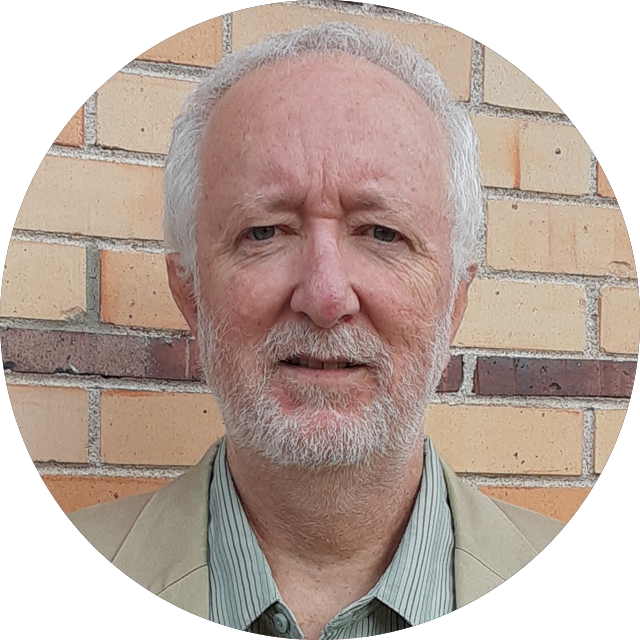I once heard a math teacher ask the Lieutenant Governor of a state if he arrived on time for a meeting they both were attending. He answered yes. She followed her first question with another: “Did you know how long in advance you needed to leave your home to get here on time?” He told her 50 minutes. “Then you used algebra,” she pronounced, as satisfied as anyone can be.
Sitting there listening, I wondered if cavemen were always late to where they were going because algebra hadn’t been invented yet.
At Thanksgiving dinner, my brother-in-law asked me what I was up to these days. I told him as a consultant for Education First I was working with the Oregon Community College Association and the 17 community colleges it supports to redesign developmental education – developmental education being the place where students without college level skills go to develop them before they can take college level classes. It is well documented, however, that the vast majority of students placed into developmental education never complete their course of study. See, for instance, Complete College America’s “Remediation: Higher Education’s Bridge to Nowhere.”
Students are placed into developmental education in mathematics usually because of scores on a placement test that measures concepts through algebra and trigonometry (known as Algebra II/Trigonometry and Pre-calculus in high schools and College Algebra, Trigonometry, and Pre-calculus in most colleges). Algebra II and Trigonometry, or Pre-calculus are prerequisites for Calculus – and unless you’re a STEM major, it’s about as big of an obstacle as there is to college completion. Few placed into developmental education ever pass it and go on to get degrees.
To address this challenge, I explained to my brother-in-law, Oregon colleges are creating additional rigorous math pathways that do not require college algebra and lead to degrees in non-STEM fields. This is not to say that these alternate math pathways exclude algebra altogether. Algebraic concepts are in fact embedded in the mathematics that students learn in primary school. Doug Nelson, math instructor and a leader in the effort to create new pathways in Oregon, sums it up: “The courses developed and now being implemented in Oregon for alternate pathways do quite a bit of algebra. It is just not done in a traditional, symbolic manner, but in a more applied quantitative way.”
Oregon is not unique in its belief that students need alternate pathways. It is following a path suggested by some important actors in the community college reform community. Achieving the Dream, the American Association of Community Colleges, the Charles A. Dana Center at The University of Texas, Complete College America, the Education Commission of the States and Jobs for the Future have all signed on to an agenda that would eliminate the one-size-fits-all college algebra requirement for all college certificates and degrees. The agenda points out that “many students are tripped up” by content unrelated to the degrees they are pursuing and that there ought to be alternate pathways for students not pursuing calculus:
There is also growing consensus among the professional associations of mathematicians that intermediate algebra and college algebra should not be the default requirement for programs that do not depend on their content. Students pursuing a program that does not require calculus would likely be better served by taking a rigorous mathematics course more aligned with their intended major. Gateway courses in statistics, mathematical modeling, or quantitative reasoning, rather than college algebra, may be more appropriate for a large percentage of students who are not on a calculus path.
Over Thanksgiving dinner, my family expressed alarm at this emerging trend.
“Algebra teaches you how to think.”
“How can we compete with other countries if we don’t require algebra of everyone?”
“You aren’t an educated person if you don’t know algebra.”
Algebra – the kind we expect all high school graduates to know if they are college- and career-ready – is indeed a tool for analytic thinking. Most four-year colleges – selective and non-selective – require students to pass algebra. Algebra opens doors to many jobs on which our 21st century economy will depend.
So there are profound equity issues that should prevent us from even considering taking students off the algebra pathway early in their high school careers. We just can’t do that. K-12 teachers and leaders have to believe with every fiber of their beings that all students can pass intermediate algebra. The Common Core State Standards (CCSS) reinforce that students need many of the concepts in intermediate algebra – though not all of them. In fact, the CCSS explicitly show which math concepts are needed by all students (many but not all intermediate algebra concepts) and which are explicitly for students going on to calculus-requiring STEM fields. Let’s look at some actual algebra and push on the assumption that all high school and college graduates must know all college algebra concepts. Take, for instance, this problem from a Mercer Community College practice test:

My son, who is a chemistry geek, headed for a secondary science classroom for Teach For America and then to medical school, solved the problem in a heartbeat:

I’m 52 years old, have had a 30-year career as an English teacher, school leader, foundation program officer and a consultant and don’t have a clue how he arrived at the answer. He’s explained his thinking to me several times, shown me his written work and I still don’t get it.
So let me engage in hyperbole for the sake of making a point. What if I weren’t allowed to write this blog piece or work for Education First if I couldn’t simplify this rational expression? That would be silly, wouldn’t it? Yet this is what we’re saying to college students who do not want careers in science, technology, math or engineering: “You can’t become an English teacher, early childhood practitioner, social worker, linguist or psychologists unless you can solve this and problems like it.” That’s kind of silly too. It’s also silly that we don’t require, instead, gateway courses in statistics, modeling or quantitative reasoning instead.
The New York Times produced a terrific and poignant piece about a young man named Vladimer de Jesus, who lives in public housing in New York City, attends LaGuardia Community College and wants nothing more than to teach studio art and art history but just can’t get linear and quadratic equations – in fact, he’s failed the course three times and is considering giving up and taking a job in the city’s sanitation department. “This whole thing with math just hits your spirit in the wrong way . . . . It demolishes your spirit,” the Times reporter quotes him as saying.
Let’s hope Mr. de Jesus and those in the same predicament can soon get on with their lives and dreams. Complete College America, the Education Commission of the States, the Dana Center, Achieving the Dream, Jobs for the Future and the American Community College Association all think they should be able to. Were they in Oregon, they could.
Today we have the problem that a college degree remains an elusive dream for far too many college students, especially those at the community college level who don’t need to master algebra for their chosen professions. At some point, we need to say enough is enough, let them ply their talents in another pathway – including the only field of mathematics that I have used in 30 years of work: statistics.
When do we place students on new pathways? Perhaps as early as 11th or 12th grade. But it certainly can happen when college students choose a certificate or a degree program that doesn’t require calculus.
Like their colleagues who have passed algebra, they seem to be getting to where they need to be on time, even if they can’t always solve for X.
SaveSave

